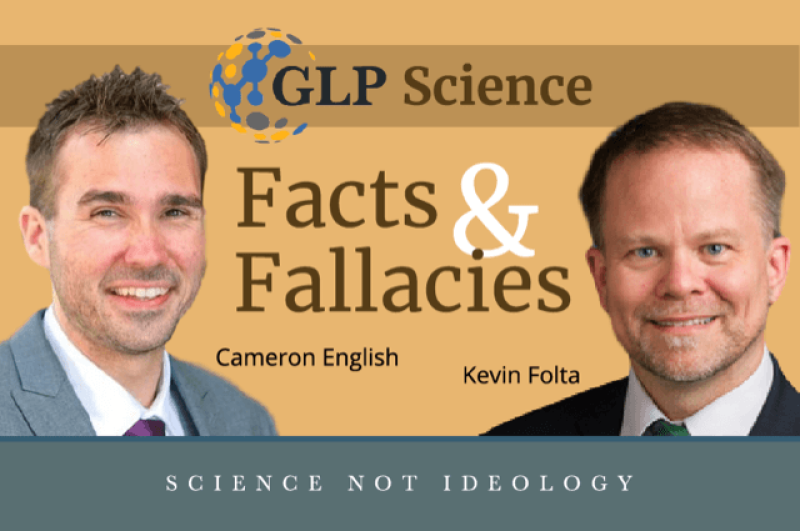Podcast:
Podcast: Play in new window | Download
Subscribe: RSS
Join geneticist Kevin Folta and GLP contributor Cameron English on episode 210 of Science Facts and Fallacies as they break down these latest news stories:
Critics of modern agriculture have claimed for years that the world has only 60 harvests left; “industrial farming” has so thoroughly depleted our soil, the argument goes, that we soon won’t be able to feed ourselves. Although this idea remains popular, it has never been correct. Food production has exploded in recent decades while the amount of land dedicated to agriculture has only increased slightly. On balance, technological advances, especially in plant breeding beginning with the Green Revolution, have made our food supply far more sustainable.
As new biopesticides come online, they are almost immediately confronted by insects, weeds and microorganisms that can rapidly develop resistance to their pesticidal effects. What’s the solution? According to a recent study, farmers have to grow a variety of crops and utilize different chemistries with varying modes of action. This helps prevent pests from evolving resistance to any one of the products used to control them. But the question remains: how much progress are we actually making in controlling pesticide resistance?
The US has a regulatory system in place designed to protect public health from potentially dangerous chemicals used for industrial applications, including pesticides. Unable to convince regulators to ban many pesticides, activist groups have taken a different tack: selectively filing lawsuits around the country, convincing judges that some chemicals should be banned, or at least more tightly regulated. The result of this regulation-through-litigation strategy is that many low-risk chemicals that help us produce an abundant food supply could disappear from the marketplace. What can be done to halt this concerning trend?
Kevin M. Folta is a professor, keynote speaker and podcast host. Follow Professor Folta on Twitter @kevinfolta
Cameron J. English is the director of bio-sciences at the American Council on Science and Health. Visit his website and follow ACSH on Twitter @ACSHorg































